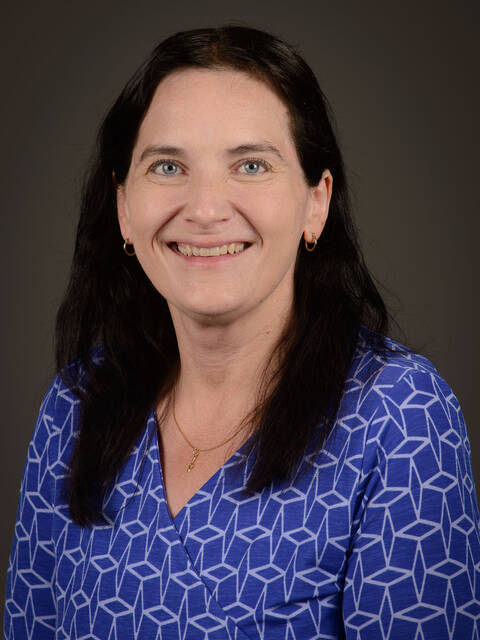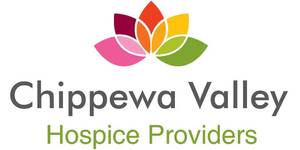This single-day training will cover important and relevant topics such as understanding Hmong culture at end of life, kids and grief, and dementia care at end of life. Expert presenters will share their knowledge and experience on these important topics.
| Related Program |
|---|
Become an expert and provide the best care possible.
As care providers, you might know what it takes to make a patient feel comfortable at the end of their life, but do you know how to respect their cultural beliefs and values? While you might commonly work with older adults at end of life, do you know the best ways to support grieving children? When your patients are suffering from dementia, do you have the experience and skills to support them at end of life?
During this single-day training, our passionate expert presenters will educate care providers on all of the critical topics listed above. Please join us to feel better prepared and more knowledgeable navigating these unique and important topics.
Agenda
10:00 am Welcome
10:15 am Hmong Culture at End of Life
11:45 am Lunch
12:30 pm Kids and Grief
2:00 pm Break
2:15 pm Dementia Care at End of Life
3:45 pm Closing
4:00 pm Adjourn
Hmong Culture at End of Life
Currently, Wisconsin has the third-largest Hmong population in the United States. In the presentation, Hmong Culture at End of Life, Youhung Her-Xiong and Elizabeth Moua will discuss the traditional healthcare beliefs and rituals of many Hmong Americans. The Hmong have been living in the United States for 40 years and have adjusted in many ways to their new culture, yet many still honor the beliefs and rituals of health, healing and end of life that they practiced in their hometown. The lack of knowledge of different health care practices within the Hmong community has served as a barrier for healthcare professionals to provide culturally sensitive care to Hmong patients.
Objectives for this session include:
- Understand the Hmong American beliefs and rituals surrounding the care provided at end of life
- Understand the Hmong American’s health and healing beliefs
- Understand the challenges faced by Hmong American elders who honor their traditional beliefs and rituals and how healthcare professionals can use this knowledge to deliver culturally sensitive health care to their patients.
Kids and Grief
Typically, when we talk about end of life care and support, we think about older adults. There is a lack of expertise and knowledge for how best to support young children when they experience the difficult emotions surrounding death and the loss of a loved one. In the presentation Kids and Grief, Dr. Lisa Quinn Lee will go beyond bereavement basics to help you best support your young patients. In this presentation, you will learn the similarities and differences between adult and child grief. You will learn the critical support methods a child needs when they are grieving and learn how to help them.
Objectives for this session include:
- Understand the similarities and differences between child and adult grief
- Explain the needs of grieving children
- Identify ways to help grieving children
Dementia Care at End of Life
Dementia is a terminal illness, yet the course of the illness varies from person to person. In the presentation, Dementia Care at End of Life, Deborah Hoffman, and Lisa Wells will teach prognostication tools for a referral to palliative care and the benefits of hospice care. They will educate you on the common symptoms that signify a person with dementia is approaching end of life. You will also learn important communication, spiritual and cultural dimensions for supporting families and caregivers of those with dementia. Special guest, Paula Wainscott, a wife and caregiver for her husband who had Alzheimer's, will share her experience.
Objectives for this session include:
- Recognize dementia as a terminal disease for Palliative & Hospice Care Eligibility
- Identify best practices in the management of common symptoms at end-of-life
- Acknowledge the importance of supporting individuals living with dementia and their families at end-of-life
Who should attend
Social workers and counselors, health and human service professionals, nurses, nurse practitioners, doctors, chaplains, nursing home administrators.
Instructors
-
Youhung Her-Xiong, MSW, APSW, is currently a Doctoral Candidate in the Ph.D. in Social Welfare program in the School of Social Work at UW-Madison. She has experience with medical social work, community work, program evaluation, and qualitative research. Her interests surround healthcare disparities, aging, end-of-life care, and interventions and education with minority communities.
-
Elizabeth Moua, MSW/APSW, is an advanced practice social worker at Mayo Clinic Health System. She has served as co-chair of the Education Committee for the Section of Social Work since 2014 and was an Associate Lecturer for the University of Wisconsin – Madison’s Part-Time Social Work program for the last three years. Elizabeth’s areas of interest include Hmong health and aging, end-of-life care and advance care planning.
-
Lisa Quinn-Lee is an Associate Professor in the Department of Social Work at UW-Eau Claire. She received a Bachelor’s in Social Work from UW-Eau Claire, Master’s in Social Work from UW-Madison, and a Doctor of Philosophy degree in Social Work from the University of Minnesota. Dr. Quinn-Lee has spent over 15 years as a clinical social worker in the areas of grief, loss, and end-of-life care, especially related to children's grief. She has worked as a hospice social worker, grief therapist, and bereavement coordinator. She has always felt honored and privileged to have the opportunity to work with people during the difficult times in their lives. Dr. Quinn-Lee has given many presentations nationally and locally about death, dying, grief, and loss and is passionate about the field. At UW-Eau Claire, she conducts research in the areas of grief and end-of-life care, and also teaches a death and bereavement course. Prior to coming to UW-Eau Claire, she spent most of her career working in the Twin Cities.
-
Debra Hoffman, DNP, MS, RN, APNP, ACNS-BC, CNE, is an associate professor, adult clinical nurse specialist and nurse educator with over 35 years of experience in hospice, palliative, integrative methods/medicine, perianesthesia, and grief/bereavement. Her research includes the use of acupressure for postoperative nausea and vomiting in ambulatory surgical patients, complementary alternative medicine use in older adults and group exercise effects on quality of life in patients and families with dementia. She has worked collaboratively with the Eau Claire County Health Department and Aging and Resource Center with undergraduate student projects focused on populations with dementia and also serves on the Eau Claire County Dementia Coalition.
-
Lisa Wells has been with the Aging & Disability Resource Center of Eau Claire County, WI for 17 years. Ms. Wells provides support for individuals with Dementia and their caregivers, offers memory screenings, evidenced based-programs, assistance with care planning and connections to support and resources. She assists in developing dementia-friendly communities, the civic awareness of dementia-related issues, and training. She is also an instructor at the Wisconsin Indianhead Technical College and teaches Gerontology – Aging Services Professional Program. Ms. Wells holds a master’s degree in Gerontology from Bethel University in St. Paul, Minnesota.
-
Paula Wainscott found herself in the role of full-time family caregiver when her husband Charles was diagnosed with Alzheimer’s disease in 2013. In the spring of 2015, Paula’s brother Ron was diagnosed with pancreatic cancer. She experienced first-hand the support of both palliative care and hospice care as she navigated terminal and end of life care with both of these special men. Paula currently volunteers as a support group leader and trainer to other family caregivers. She is also a care partner for her mom who is living with early stage memory loss.
Sponsor
*Listing of sponsors does not represent endorsement by UW-Eau Claire Continuing Education.

